My school, Sirigu Senior High School, let me tell you about my school. First let me tell you about the educational system in Ghana. ok, here we go...
Ghana Education Services (GES) is a the branch of the gov't that we deal with and the system is very centralized, overall. There are very few private schools, especially at the primary and secondary levels. Students go to Primary school for 6 years, starting at about age 5 (depends on the parents, if they need them at home). Some kids don't go to school at all, but Primary is free except for some school fees, cost of uniforms, books, pencils, etc. (There ain't no such thing as a free lunch.) Each year is called a "Form" instead of a grade, so we say a first year student is a P1 student. Uniforms for Primary School students is usually brown on the bottom, yellow/tan on the top. There is also Nursury for little kids before Primary, but that seems to be mostly in more urban areas. Little ones wear cute checked uniforms in different colors.
After Primary, students go to Junior Secondary School (JSS). JSS has 3 forms, and the Form 3 students help organize things with a prefect system (like in Harry Potter!). Their uniforms around here are blue bottom and yellow top, except the prefects, who wear tan bottoms and white tops. It's a day school, so the students go home at the end of the day, as in the US. At the end of JSS, the form 3 students take a standardized test called BECE that determines which Senior High School they will go to. They list preferences and if their scores are good, they go to a good school. If their scores are okay, they come to a smaller, not as good school (like mine) and if their scores are not so good at all, they go and work on the family farm and don't go to SS.
They have just added a fourth year to SS, making it SHS, so I teach Form 2 and Form 3 Integrated Science. Prefects, seniors chosen by their peers, keep the other students in line and do a lot to keep the school running. Around here, uniforms are tan on bottom and light blue on top, prefects wear pink on top. Most SHS schools are boarding schools that house and feed the students as well as teach them. Usually, students want to go to a big school that is at least a little ways from their home town. The attitude is similar to HS seniors in the US looking at colleges-they want to move away from home and all that. Boarding schools have higher school fees, more students, and more buildings. Sirigu Senior High School is a day school, which is uncommon for SHS. It has no electricity or running water; a borehole to fetch water is a 5 min walk away. It is not as expensive (annual school fees are about $50) and there are many fewer students than other schools. Many of my students are from the area, and still live at home. Others rent rooms in the village and have to feed themselves. They want the school to become a boarding school, but that will take a lot of development at this point.
In Ghana, the students normally stay in the same classroom and the teachers move from room to room. The rooms are very sparce, at my school, there are only desks for some students, so the rest have to bring their own. I teach in a open air classroom, tin roof, cement walls and open windows with shutters. (That is actually a basic description of a lot of buildings here) The blackboard is smooth cement on the wall. The students occasionally paint it with battery acid (not a joke) to make it black, but it comes off on my hands and only lasts a week or so. The classes are small at my school, 10 to 25 students. The school offers different "courses" similar to majors in college in US. Sirigu SHS offers Business, General Arts, and Agric. Students sit with their form mates who are offering the same course and a class captain keeps track of the class.
At the end of 3rd year (will soon be 4th year) the seniors, or candidates take a massive standardized test for all of English-speaking West Africa called the WASSCE. Basically, it determines weather they can go to university, technical school or any other tertiary ed. We spend a lot of time teaching to the test, as it is so important.
Looking back at what I've just written, it is informative but fairly dry. I'll write some more interesting and detailed stuff another time. Overall, I like my school and I am happy to be there. The students are what really keep me going. They are eager to learn and try hard, even though their obstacles are many.
Love,
Toby
Subscribe to:
Post Comments (Atom)

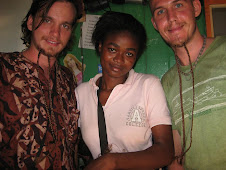



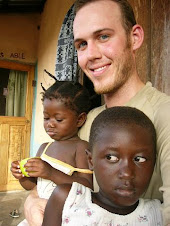
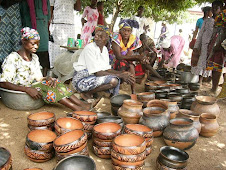
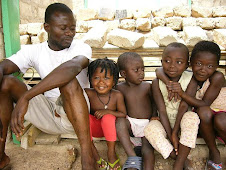

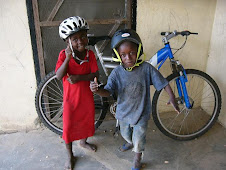
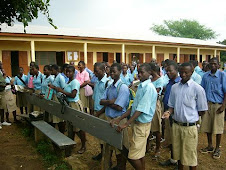


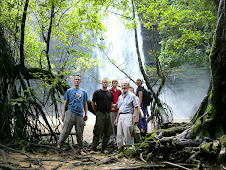

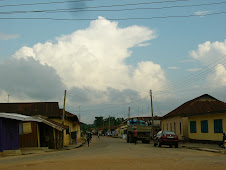



No comments:
Post a Comment